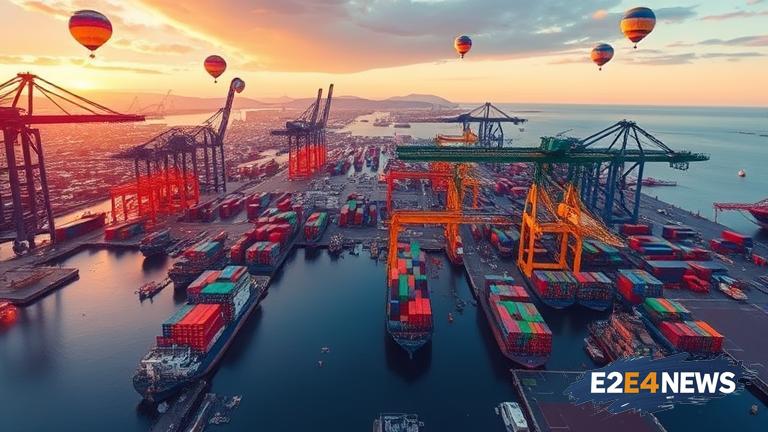The world of international trade is constantly evolving, with new trends and challenges emerging every day. One of the hottest topics in international trade right now is the ongoing trade tensions between the US and China, with tariffs and trade agreements being renegotiated and revised on a regular basis. The impact of these tensions is being felt across the globe, with businesses and industries of all sizes struggling to adapt to the changing landscape. Another key area of focus is the rise of protectionism, with countries around the world implementing new trade barriers and restrictions in an effort to protect their domestic industries. Despite these challenges, there are still many opportunities for growth and expansion in international trade, particularly in emerging markets such as Africa and Southeast Asia. However, businesses looking to take advantage of these opportunities will need to be aware of the complex regulatory requirements and compliance issues that come with trading in these regions. The use of technology, such as blockchain and artificial intelligence, is also becoming increasingly important in international trade, with many companies turning to these tools to streamline their supply chains and improve efficiency. But with the benefits of technology come new risks and challenges, such as cybersecurity threats and data protection concerns. The importance of sustainability and environmental responsibility is also becoming a major factor in international trade, with consumers and governments around the world demanding more eco-friendly and socially responsible business practices. As a result, companies are having to rethink their supply chains and business models to prioritize sustainability and reduce their environmental impact. The role of trade agreements, such as the USMCA and the EU’s Generalized System of Preferences, is also critical in shaping the international trade landscape. These agreements can provide businesses with preferential access to new markets and help to reduce trade barriers, but they can also be complex and difficult to navigate. The impact of Brexit on international trade is another major topic of discussion, with the UK’s departure from the EU set to have significant implications for trade relationships and supply chains. The use of free trade agreements, such as the CPTPP and the RCEP, is also on the rise, with these agreements providing businesses with new opportunities for trade and investment. However, the negotiation and implementation of these agreements can be a long and complex process, requiring careful consideration of the potential benefits and risks. The importance of trade finance, such as letters of credit and factoring, is also critical in facilitating international trade, particularly for small and medium-sized businesses. But with the benefits of trade finance come new risks and challenges, such as currency fluctuations and payment risks. The role of international organizations, such as the WTO and the IMF, is also vital in promoting fair trade practices and providing support to businesses and governments around the world. The impact of global events, such as the COVID-19 pandemic, is also having a significant impact on international trade, with supply chains and trade relationships being disrupted and rewritten. As the world of international trade continues to evolve, businesses and governments will need to be agile and adaptable in order to stay ahead of the curve. This will require a deep understanding of the complex trends and challenges shaping the international trade landscape, as well as a willingness to invest in new technologies and business models. By staying informed and up-to-date on the latest developments in international trade, businesses can position themselves for success in an increasingly complex and competitive global market. The future of international trade is uncertain, but one thing is clear: it will be shaped by a complex interplay of technological, economic, and political factors. As such, it is essential for businesses and governments to prioritize sustainability, innovation, and cooperation in order to build a more resilient and equitable global trade system. The benefits of international trade are clear, from promoting economic growth and job creation to fostering cultural exchange and understanding. However, the challenges and risks associated with international trade must also be acknowledged and addressed, from trade tensions and protectionism to sustainability and regulatory compliance. By working together to address these challenges and promote fair trade practices, we can build a brighter future for international trade and create new opportunities for businesses and communities around the world.
